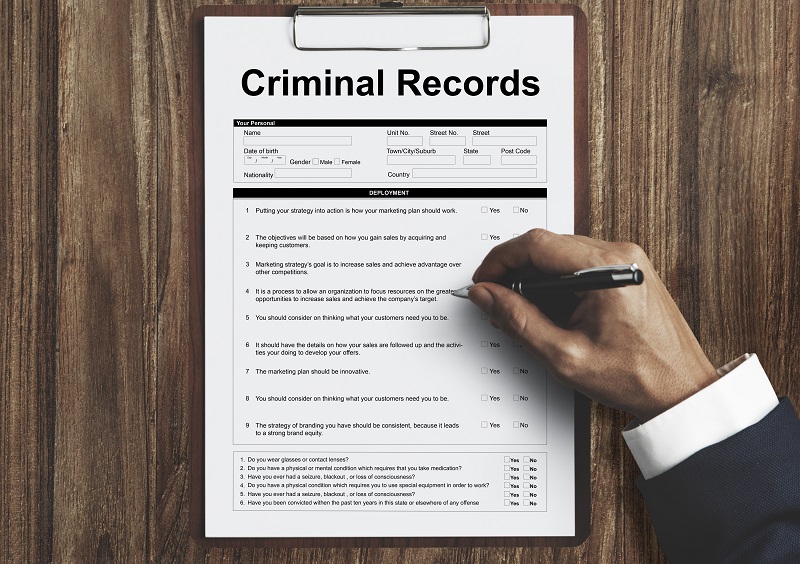If you’re facing a drink driving charge—or just trying to understand how serious the consequences can be—you’ve probably asked, what’s the minimum sentence for drink driving? It’s one of the most common questions people have, and for good reason. Drink driving is one of those offenses that’s socially frowned upon, legally punishable, and handled differently depending on where you are and how bad the facts are. Whether it’s a first-time mistake or a repeat offense, knowing what’s at stake can help you avoid costly surprises.
This guide takes you through everything you need to know about the minimum sentence for drink driving, including how courts make decisions, what factors affect sentencing, and how you can protect your rights if you’re facing charges. We’ll also explore real-world examples to give you clarity, and show how even a “minimum” sentence can carry long-term consequences.

What Does “Minimum Sentence for Drink Driving” Actually Mean?
When people ask about the minimum sentence for drink driving, they’re usually hoping for good news. They’re wondering if they can escape jail, reduce fines, or avoid license suspension. But here’s what minimum really means: it’s the lowest punishment a court can legally give, depending on your state’s or country’s drink driving statutes.
Minimum sentences exist for two reasons. First, they establish a baseline to deter the behavior. Second, they give judges guidance, so that similar cases receive similar outcomes. But here’s the twist—minimum doesn’t mean “light.” Even first-time offenders can face license loss, fines, and probation as part of the minimum punishment. And some jurisdictions have mandatory jail—even for a first offense.
Real-Life Story: James’s Unexpected Jail Time
James, a 28-year-old junior accountant in Texas, went out to celebrate a promotion. He had a couple of beers, didn’t feel drunk, and decided to drive home. A routine traffic stop turned into a drink driving charge after his breath test came back at 0.10%. He had no prior record and assumed the court would go easy on him.
To his surprise, the judge sentenced him to 3 days in county jail, along with 12 months of probation, a $1,000 fine, and a required alcohol education course. James’s case highlights something critical: even when you expect leniency, the minimum sentence for drink driving can still involve jail time depending on where you are.
Minimum Sentences by Jurisdiction: A General Comparison
Drink driving laws vary across the U.S. and internationally. While we can’t cover every state or country here, this section gives a snapshot of how the minimum sentence for drink driving plays out across common jurisdictions.
Texas
- First offense: Minimum of 3 days in jail, $2,000 fine, and license suspension up to 1 year
- Second offense: 30 days minimum jail, $4,000 fine
- Third offense: Felony with 2-year minimum prison sentence possible
California
- First offense: 48 hours in jail (can be converted to work program), $390 fine, 6-month license suspension
- Second offense: 96 hours in jail minimum
- Third offense: 120 days minimum in jail
UK (England & Wales)
- First offense: Minimum 12-month driving ban, fine up to £2,500, community service or prison (up to 6 months)
- Aggravating factors: Higher BAC levels, accidents, or child passengers increase penalties
Australia (NSW example)
- Low-range PCA (0.05 to 0.079): Immediate 3-month license suspension, $587 fine
- Mid-range (0.08 to 0.149): 6 months minimum disqualification, $2,200 fine, possible prison
- High-range (0.15+): 12 months license loss, minimum of 6 months disqualification and possible jail
Clearly, the minimum sentence for drink driving is rarely a slap on the wrist.
What Factors Influence a Judge’s Sentencing Decision?
Even with a minimum sentence on paper, courts weigh a variety of factors before handing down punishment.
1. BAC Level
A BAC close to the legal limit may be treated more leniently than a high BAC (e.g., 0.15% or above). Many states even define a “high BAC” level that triggers enhanced penalties.
2. Driving Behavior
Was there swerving, speeding, or an accident involved? Dangerous driving will increase the likelihood of more serious consequences, even on a first offense.

3. Prior Offenses
If this is your second or third conviction, minimum sentences increase—and the possibility of jail or felony charges becomes real.
4. Presence of Minors
Driving under the influence with a child in the vehicle is often charged as a separate felony, carrying a higher minimum sentence for drink driving and potential child endangerment charges.
5. Cooperation
Refusing a breathalyzer, resisting arrest, or failing to appear in court can all raise red flags. Courts tend to go easier on those who comply with the legal process.
Real-Life Story: Laura’s Lesson in Timing
Laura was charged with drink driving after a night out in Michigan. Her BAC was 0.09%, just over the limit. Her attorney negotiated for the absolute minimum sentence for drink driving under Michigan law: a $500 fine, 360 hours of community service, and no jail time.
The catch? She had to attend every court-ordered class and complete her community service exactly on schedule. When she missed a session, the court revoked her deal—and she spent 10 days in jail. Laura’s case is a warning: even when the minimum sentence is manageable, failing to meet conditions can lead to harsher punishment.
First-Time Offenders: What You Need to Know
Most jurisdictions distinguish between first-time and repeat offenders. First-time drink drivers often qualify for lighter sentencing, but that doesn’t mean the process is easy.
Common Conditions for First-Time Offenders:
- Probation (6 to 12 months)
- Fine or court costs
- Mandatory alcohol education classes
- Victim impact panels (in some states)
- Restricted or suspended license
- Community service
Some states also offer diversion programs, which allow offenders to complete education or treatment in exchange for dismissal of the charge or expungement. But beware—these options aren’t always guaranteed.
Can You Avoid Jail for Drink Driving?
If you’re concerned about jail, you’re not alone. Many people facing drink driving charges fear incarceration more than anything. The good news is that in some states, minimum sentences can be satisfied through alternatives like:
- Alcohol monitoring bracelets
- Home confinement
- Community labor programs
- Weekend jail (serving time on weekends only)
An experienced DUI attorney can help negotiate these options—especially if you have no prior criminal history.
Real-Life Story: Chris Gets a Second Chance
Chris, a 33-year-old teacher, was arrested for drink driving in Arizona with a BAC of 0.14%. He faced 10 days of mandatory jail time. However, Arizona law allows 9 of those days to be suspended if the driver completes alcohol screening and counseling.
With the help of his lawyer, Chris was able to serve just one day in jail. It was still a wake-up call, but much better than losing his job or sitting behind bars for over a week.
What Happens After You Serve the Minimum Sentence?
Completing your minimum sentence for drink driving doesn’t mean you’re free and clear. Many states require:
- Ignition interlock devices (even for first offenses)
- Proof of insurance (SR-22 filing)
- Completion of a license reinstatement process
- Ongoing reporting if you’re on probation
- Alcohol monitoring in some cases
You may also experience long-term effects, including:
- Higher car insurance rates
- Difficulty renting vehicles
- Employment screening issues
- Travel restrictions to countries like Canada and Australia

Long-Term Consequences of a Drink Driving Conviction
The legal sentence is just the beginning. Having a drink driving record—especially if you served jail time—can follow you for years.
Examples of Long-Term Consequences:
- Employment background checks revealing your record
- Professional license suspensions (nurses, teachers, realtors)
- Travel limitations to countries that screen criminal records
- Housing applications that ask about convictions
- Social stigma within your community
It’s why so many people fight hard to avoid a conviction altogether, or at least minimize the sentencing and long-term fallout.
Real-Life Story: Natalie’s Immigration Delay
Natalie, a permanent resident from the UK living in the U.S., was applying for citizenship when her prior drink driving conviction came up. Even though she had served her minimum sentence and paid all fines, immigration officers delayed her naturalization application by over 18 months due to “character concerns.”
She eventually gained citizenship but had to submit additional references, complete a formal interview, and show documentation of rehabilitation. Natalie’s experience shows that even the minimum sentence for drink driving can echo into unrelated aspects of your life.
Can You Get a Drink Driving Conviction Expunged?
In some jurisdictions, yes. Expungement can help clean up your record and may allow you to legally state you’ve never been convicted. However, eligibility varies by state and depends on:
- Whether it was your first offense
- How long ago it occurred
- Whether you completed all conditions
- Your criminal history since the offense

Expungement doesn’t happen automatically—you usually have to petition the court and may need to attend a hearing. If you’re hoping to clear your record after serving the minimum sentence for drink driving, talk to a local criminal defense attorney about your options.
Texas DUI Minimum Sentences Explained
So, what’s the takeaway? The minimum sentence for drink driving might sound like a best-case scenario, but it’s still serious. Jail, fines, probation, and license suspension are common, even for first-time offenders. The actual outcome depends on your BAC, your record, and how well your case is handled.
The smartest move? Don’t wait and hope for the best. Speak with a DUI defense lawyer early, explore your options, and take every opportunity to reduce both the legal and personal impact of a drink driving charge. Minimum doesn’t mean minor—and being proactive could make all the difference.


